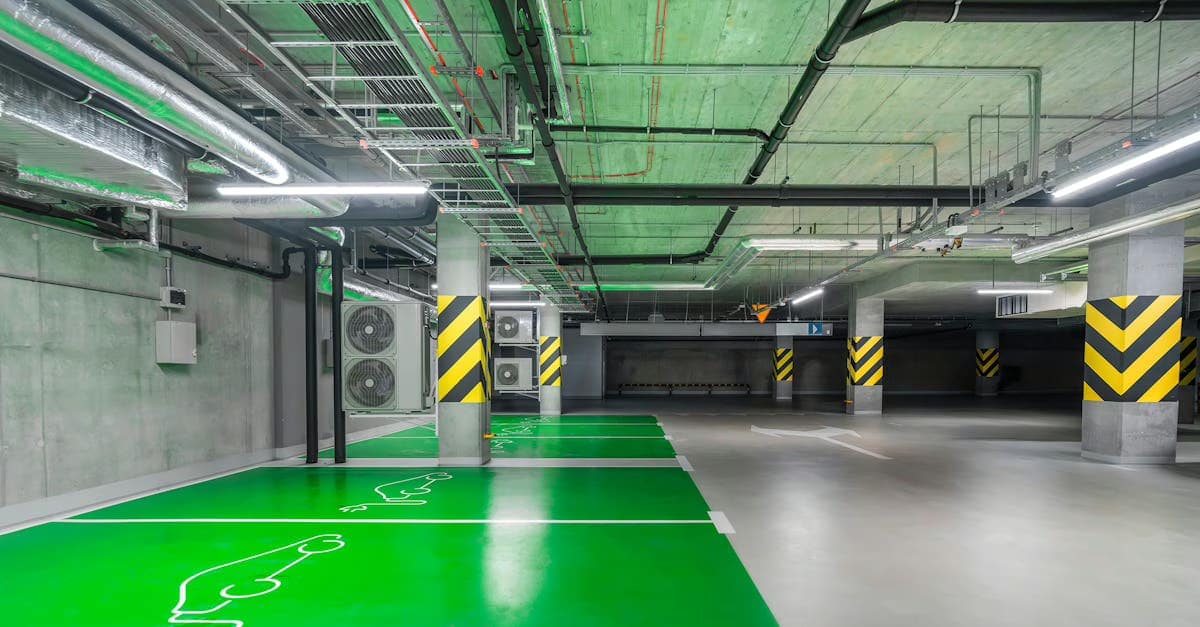Achieving Operational Sustainability in Real Estate with AI Transaction Coordinators
Sustainability in Real Estate isn’t just about green buildings anymore; it’s increasingly about the operational resilience and efficiency of your brokerage. As a former Realtor, I saw firsthand how manual processes, compliance headaches, and scattered workflows drain resources. Brokers face the constant pain point of maintaining meticulous compliance while scaling efficiently. This is where true operational Sustainability in Real Estate comes into play. Implementing smart solutions offers a massive opportunity to streamline, reduce risk, and position your brokerage for lasting success in a competitive market. Embracing digital tools for transaction coordination and back-office tasks is key to achieving operational sustainability.
The Pillars of Operational Sustainability in Real Estate
Building a truly sustainable real estate brokerage in today’s fast-paced market requires more than just closing deals. It demands a foundation built on efficiency, robust compliance, and strategic adoption of technology. Operational sustainability means creating systems that not only function well now but can also adapt and scale for the future. This involves standardizing workflows, ensuring every transaction meets legal and brokerage standards, and leveraging tools that reduce manual burdens and potential errors.
For many brokerages, the sheer volume of paperwork and communication in each transaction presents a significant challenge. Maintaining consistency, especially across multiple agents and varying deal complexities, is tough. This is where focusing on operational sustainability becomes critical. It’s about creating a resilient business model that can handle volume, maintain high service levels, and navigate the ever-changing landscape of `real estate broker compliance` without getting bogged down.
Streamlining Transactions with AI Transaction Coordinators
One of the most impactful ways to enhance operational `Sustainability in Real Estate` is by optimizing the transaction process itself. This is where `AI transaction coordinators` are revolutionizing the field. Instead of relying solely on manual checks and human memory, AI can provide an added layer of verification and automation.
AI-powered tools can automatically scan documents for completeness, identify missing signatures or initials, check for critical dates, and ensure that required disclosures are included. This significantly reduces the risk of non-compliance errors, which can be costly and time-consuming to fix. By automating these routine but crucial checks, `AI transaction coordinators` free up your human transaction coordinators (TCs) and agents to focus on relationship-building and complex problem-solving, boosting overall `brokerage efficiency`.
ReBillion.ai offers AI-powered transaction coordination features designed to integrate seamlessly into your existing workflows, ensuring that every step of the transaction is tracked, compliant, and moving forward efficiently. This level of automation is key to achieving operational sustainability.
Empowering Your Team with Virtual Assistants for Real Estate
Beyond core transaction coordination, the administrative load on real estate teams can be immense. Scheduling, client communication, database management, marketing tasks – these all consume valuable time. This is precisely where `virtual assistants for real estate` become indispensable components of an operationally sustainable brokerage.
Bringing a virtual assistant onto your team, especially one integrated with smart tools, can drastically improve efficiency. They can handle the repetitive, time-consuming tasks that often distract agents and brokers from income-generating activities. Whether it’s managing calendars, responding to routine inquiries, preparing basic reports, or uploading documents, `virtual assistants for real estate` provide scalable support without the overheads associated with full-time, in-office staff.
ReBillion.ai provides access to virtual assistants specifically trained in real estate operations, equipped with the knowledge and tools to jump in and make an immediate impact on your team’s productivity and contribute to the brokerage’s operational sustainability.
Ensuring Real Estate Broker Compliance Automatically
Compliance is non-negotiable in real estate, yet it’s a constant source of stress and potential risk for brokers. Regulations change, paperwork requirements vary, and one missed initial or deadline can lead to significant issues. Achieving true `Sustainability in Real Estate` operations means embedding compliance checks directly into your processes, not handling them as afterthoughts.
Automated `real estate broker compliance` tools monitor transactions in real-time, flagging potential issues before they become problems. This proactive approach is far more effective and less stressful than reactive damage control. Automation ensures consistency across all transactions, regardless of which agent or TC is handling the file. This reduces the burden on brokers who are ultimately responsible for ensuring compliance.
ReBillion.ai’s platform includes features designed for robust `real estate broker compliance` monitoring, built into workflow automation to provide peace of mind and a higher level of accuracy across your entire operation, enhancing operational sustainability.
Leveraging Transaction Coordinator Tools for Efficiency
At the heart of an efficient back office are specialized `transaction coordinator tools`. Generic project management software or spreadsheets simply aren’t built to handle the unique complexities of real estate transactions, with their specific forms, timelines, and communication needs.
Effective `transaction coordinator tools` provide centralized dashboards, automated reminders, document management, communication logs, and integrations with other essential real estate software. These tools provide visibility into the status of every deal, making it easier to manage workloads, prioritize tasks, and ensure nothing falls through the cracks. Implementing the right suite of tools is fundamental for operational sustainability.
Implementing Smart Back Office Automation
Building on `transaction coordinator tools`, implementing `smart back office` automation takes efficiency to the next level. Automation can handle tasks like sending out standard client updates, requesting information from third parties, initiating follow-up sequences based on transaction milestones, and organizing digital files according to brokerage standards.
This level of `real estate automation` reduces the administrative burden on your staff and ensures a consistent, professional client experience. It minimizes the risk of manual data entry errors and ensures timely communication, both of which are vital for maintaining a smooth operation and achieving long-term `brokerage efficiency` and sustainability.
Integrating AI & Automation for Brokerage Efficiency
The real power comes from integrating AI and automation throughout your back office. When `AI transaction coordinators`, `virtual assistants for real estate`, and workflow automation tools work together, they create a synergistic effect. AI can identify patterns and potential compliance risks, automation can trigger necessary actions based on those insights, and virtual assistants can handle communications or tasks that require a human touch but are still routine.
This integrated approach to `real estate automation` not only improves efficiency but also provides valuable data and insights into your operations. By understanding where bottlenecks occur or which processes are most time-consuming, you can make informed decisions to further refine your systems, driving continuous improvement and cementing your brokerage’s operational sustainability. ReBillion.ai focuses on providing these integrated solutions.
Actionable Tips for Implementing Operational Sustainability
Ready to make your brokerage more sustainable through operational efficiency? Here are 5 actionable tips brokers and admins can implement immediately:
- Audit Your Current Workflows: Map out the steps for your key processes (listing to close, buyer contract to close). Identify bottlenecks, manual handoffs, and points where errors frequently occur.
- Prioritize Tasks for Automation: Look for repetitive tasks (document labeling, reminder emails, data entry) or high-risk tasks (compliance checks) that can be partially or fully automated using `transaction coordinator tools` or dedicated `real estate automation` software.
- Explore AI and Virtual Assistant Solutions: Research platforms offering `AI transaction coordinators` or `virtual assistants for real estate`. Start with a pilot program on a few transactions to test the impact on efficiency and compliance.
- Standardize Document Management: Create a clear, consistent system for naming, storing, and accessing transaction documents digitally. This makes it easier for both human staff and automated tools to process files efficiently.
- Invest in Team Training: Ensure your agents, TCs, and administrative staff are properly trained on any new `transaction coordinator tools` or automated systems. User adoption is key to realizing the benefits of operational efficiency tools.
Why Operational Sustainability Matters
Why does operational Sustainability in Real Estate matter financially and operationally? For brokerages, efficiency directly impacts the bottom line. Reducing the time spent on administrative tasks allows agents to focus on selling and brokers on growth. Automated compliance systems minimize errors, mitigating legal risks and potential fines that can be incredibly costly. Furthermore, a streamlined operation enhances agent retention and attraction – agents prefer working with brokerages that provide excellent support and efficient systems.
Investing in the right tools leads to lower overhead per transaction and a more scalable business model, ensuring long-term viability. Operational sustainability is about building a robust, flexible business that can weather market changes, handle increased volume without proportional increases in cost, and maintain a reputation for professionalism and reliability, all while ensuring strict `real estate broker compliance`.
Key Points
Achieving operational Sustainability in Real Estate requires embracing AI transaction coordinators, virtual assistants for real estate, and smart `broker compliance tools`. Streamlined workflows boost `brokerage efficiency`, reduce risk, and enable scalable growth, ensuring your business thrives long-term by focusing on `real estate automation` and `smart back office` systems.
FAQs
Q: How does AI improve real estate compliance?
A: AI can automatically check documents for missing signatures, required clauses, and deadlines, significantly reducing human error and ensuring `real estate broker compliance`.
Q: Can virtual assistants handle complex transaction tasks?
A: Yes, skilled `virtual assistants for real estate`, often supported by AI, can manage scheduling, communication, document drafts, and initial reviews under broker supervision.
Q: Are AI transaction coordinators expensive for small brokerages?
A: Many platforms offer scalable pricing. The efficiency gains and reduced compliance risk often provide a significant return on investment, even for smaller teams needing `transaction coordinator tools`.
Q: What’s the first step to automating brokerage tasks?
A: Start by mapping current workflows to identify bottlenecks. Then, explore solutions that offer specific `real estate automation` for high-volume or high-risk tasks like compliance checks and client communication.
Resources
Learn more about ReBillion.ai’s AI-powered solutions:
- Learn more about ReBillion.ai’s AI transaction coordinators
- Discover the benefits of virtual assistants for real estate
- Explore comprehensive transaction coordinator tools and the ReBillion.ai platform
- Read other articles on brokerage efficiency and compliance on the ReBillion.ai Blog
Conclusion
Embracing operational Sustainability in Real Estate through smart technology is no longer optional—it’s essential for growth and compliance. By leveraging tools like AI-powered transaction coordination and virtual assistants, brokerages can build a resilient, efficient business model. This focus on streamlined operations, powered by innovative solutions, is shaping the future of real estate. Ready to transform your brokerage’s efficiency?
ReBillion.ai helps real estate brokers streamline operations with AI-powered transaction coordination, virtual assistants, and intelligent back-office automation. Whether you’re scaling your team or closing more deals, ReBillion.ai is built to simplify your brokerage’s compliance, efficiency, and growth. Visit ReBillion.ai to explore solutions or schedule a consultation.


